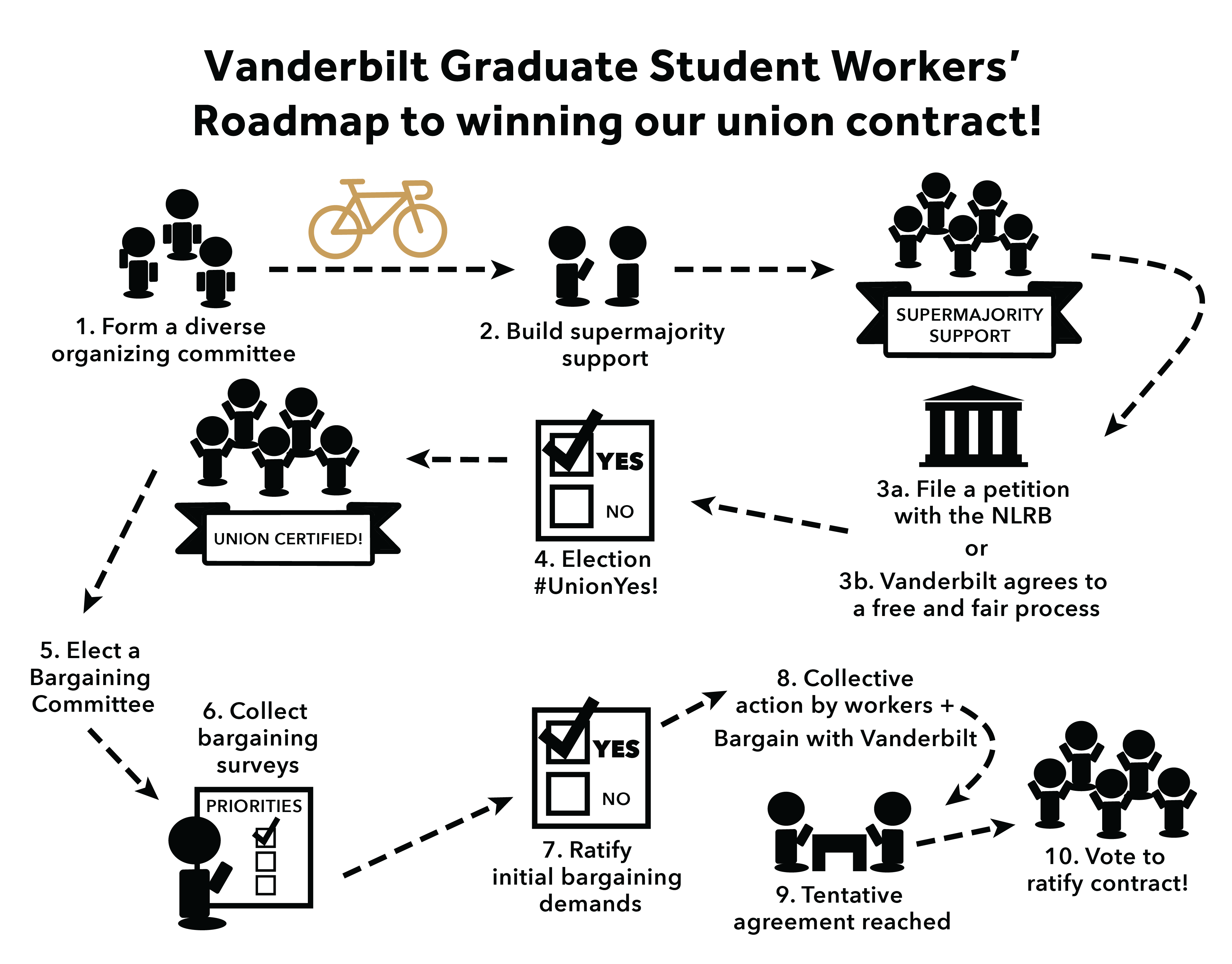Vanderbilt Graduate Workers United-UAW

We are graduate workers forming a union in order to improve our research and working conditions at Vanderbilt University. Our work not only drives the research mission at Vanderbilt, but also produces scientific and medical knowledge that can benefit the whole world. While we work across many subfields, our dedication to research unites us all.
By forming a student worker union, we can build a stronger, democratic voice, with more power to negotiate for improvements and to secure our rights and working conditions into a legally-binding contract.
Forming a union with the United Auto Workers (UAW) in particular means joining tens of thousands of higher education employees who are already part of the UAW, including graduate workers at Columbia University, New York University, Harvard University, University of Connecticut, University of Massachusetts, University of California, and University of Washington. By working together with these and other academic unions across the country, we can also build political power beyond Vanderbilt to impact funding, visa, and other policies at the national, state, and local levels that shape our experience in Academia and as scientists.

